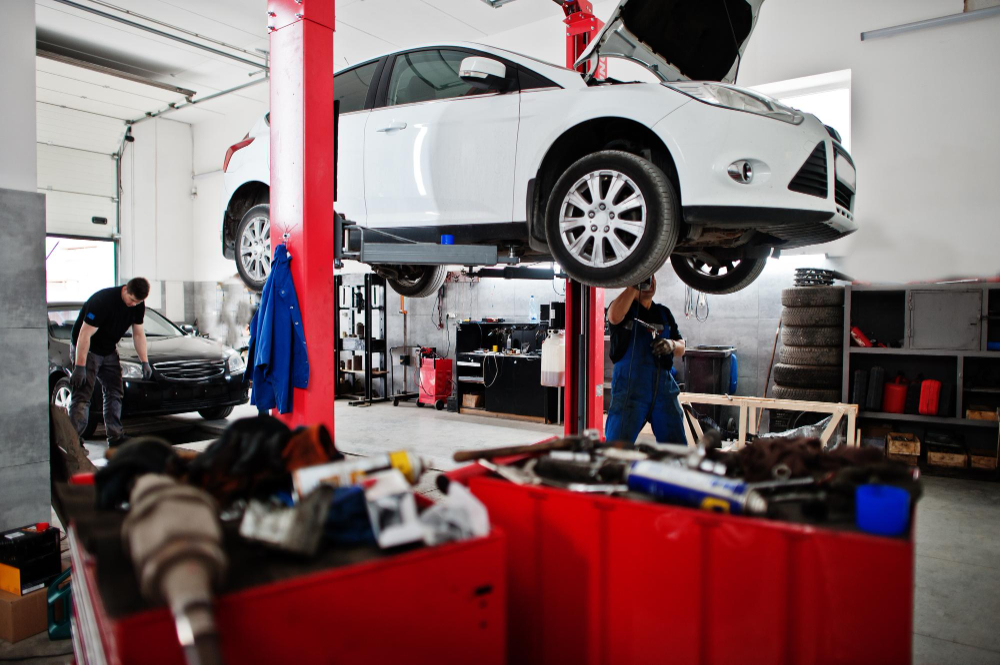Auto Repair Innovations: Service Stations of the Future
A landscape of vehicle maintenance is undergoing a notable transformation as tech keeps to advance and redefine how auto service centers and car garages function. No longer are the days of simply raising a bonnet and inspecting the motor; today, automotive repair involves advanced diagnostic tools and a profound understanding of software systems in combined with mechanical skills. With vehicles adapting with smart technologies and battery-powered drivetrains, the abilities required for technicians are quickly evolving, ushering in a new period in automotive servicing and repair.
Service stations are not just places to fill up or fix a puncture anymore. They are quickly becoming community spots of innovation where efficiency meets cutting-edge technology. From robotic inventory management systems to AR applications that assist technicians in real-time, the future of car repair offers to simplify operations and enhance customer satisfaction. Looking we glance ahead, it is clear that the integration of modern technology will redefine how we perceive about repair shops and the crucial roles they serve in car repair .
Innovative Technologies in Auto Repair
The vehicle industry is undergoing a major shift due to emerging technologies that are changing the field of auto repair. One of the notable innovations is the integration of sophisticated diagnostics tools powered by machine learning. These tools allow technicians to quickly and accurately identify vehicle issues by examining data from various sensors and systems. This not only cuts down the time required for a diagnosis but also enhances the exactness in identifying problems, making repairs more effective.
Another important technology in the evolution of car repair is the use of augmented reality and immersive technology in training and service procedures. These technologies provide immersive scenarios for technicians, enhancing their skills and knowledge of intricate systems without the need for physical components. By creating real-world environments, technicians can trial complex repairs and gain valuable experience, leading to better service outcomes for customers and greater trust in auto repair services.
Moreover, the rise of electric and hybrid vehicles has prompted the creation of tailored service techniques and equipment. Workshops are increasingly embracing technology for battery maintenance and diagnostics, enabling them to serve a growing market for sustainable vehicles. As these innovations continue to evolve, service stations will be enhanced to handle the complexities of modern automobiles, ensuring that they stay pertinent and efficient in fulfilling consumer demands.

Eco-Friendly Practices in Service Stations
In the past few years, fueling facilities have gradually adopted eco-friendly methods to reduce their environmental footprint. Many repair workshops are now utilizing eco-friendly materials and products for vehicle upkeep and repairs. This includes biodegradable oils, recycled parts, and non-toxic cleaning agents. By choosing greener alternatives, service stations not only help to a better planet but also appeal to environmentally conscious customers who prioritize sustainability in their choices.
Furthermore, progress in technology are enabling service stations to minimize waste and enhance energy efficiency. For example, the implementation of LED lighting, solar energy systems, and electric vehicle chargers is becoming more common. These innovations help to lower energy consumption while providing solutions that satisfy the needs of a expanding market for electric and hybrid vehicles. As a consequence, fueling facilities are discovering new ways to integrate renewable energy practices into their operations.
In addition to power and material considerations, service stations are also concentrating on water saving. Many repair shops are implementing water recycling systems that allow them to utilize again water used in car wash and maintenance activities. This not only saves a precious resource but also reduces the overall cost of water usage. By adopting these sustainable practices, service stations are establishing a new standard for the car repair industry that emphasizes environmental responsibility alongside excellent customer service.
The Impact of AI on Customer Experience
AI is revolutionizing the way service stations and car repair shops communicate with their customers. Through the use of artificial intelligence-driven chatbots and virtual assistants, customers can now obtain instant responses to their inquiries, schedule appointments, and even troubleshoot minor car issues without the need for human intervention. This level of accessibility not only enhances customer satisfaction but also streamlines operations, allowing mechanics to focus on more complex repairs.
In addition, AI technology can analyze customer data to provide personalized service recommendations based on individual driving habits, vehicle history, and maintenance schedules. By leveraging this information, service stations can proactively suggest services that enhance vehicle performance and longevity, creating an experience that feels tailored for each customer. This anticipatory service builds trust and fosters long-term relationships between customers and their repair shops.
Last but not least, the integration of AI with IoT devices in vehicles enables real-time monitoring of car conditions, leading to prompt alerts for potential issues. This proactive approach ensures that customers are kept informed about their vehicle's status, allowing them to make informed decisions about repairs and maintenance. As service stations adopt these advancements, the overall customer experience becomes more effective, open, and enjoyable, ultimately redefining the future of car repair services.